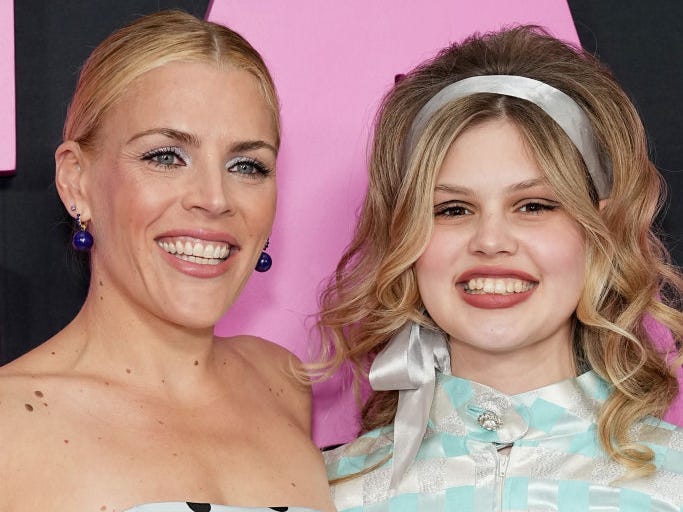- Busy Philipps was diagnosed with ADHD when she was 39.
- Philipps sought out a diagnosis after she went to get her daughter evaluated.
- We are seeing a rise in late ADHD diagnosis among women as we learn more about women's unique symptoms.
As a doctor went through the ADHD symptom checklist, Busy Philipps, then 39, found herself relating to every point.
But the evaluation wasn't for her: it was for her daughter, Birdie, now 15.
"I found myself, in my own head, answering the questions," Philipps, 44, told Business Insider. "Every single one. I'm like, 'Yes, the most, all the time, yes, that's me, 100 percent.'"
Her daughter's ADHD diagnosis prompted Philipps to seek out her own. She's not alone in her experience of late-diagnosis: a 2023 study from Epic Research found that "the percentage of women newly diagnosed with ADHD between 23–29 and 30–49 years of age nearly doubled from 2020 to 2022."
Some women only get diagnosed with ADHD after their kids do, when it becomes clear that their child's challenges mirror the ones they've dealt with themselves. Some get diagnosed after finding it especially difficult to parent with ADHD symptoms — something Philipps related to. Struggling to balance her work and childcare responsibilities made her feel that she was "never good enough" and "failing in so many different avenues."
Philipps shared how an ADHD diagnosis in adulthood helped her find treatment options that work for her, as well as newfound self-acceptance.
Philipps was previously diagnosed with ADHD as a child
Philipps said she was first diagnosed with ADHD when she was about seven or eight years old.
"It was a diagnosis that apparently no one in my family really remembered," Philipps said, save the elementary school medical records that her mom held on to. At the time, Philipps was briefly put on a medication she didn't like and hadn't thought about having ADHD since.
But her symptoms persisted from her childhood through her 20s and 30s. Her main ones included an "inability to complete tasks, trouble focusing, literally walking into rooms and not remembering why you walked into the room," Philipps said. "Often starting many different projects and leaving them sort of half done, double-booking."
Like many women diagnosed with ADHD, Philipps had more inattentive symptoms than hyperactive ones — a contributing factor to women often being underdiagnosed or diagnosed later in life compared to men.
She manages ADHD symptoms with medication and a few hacks
Philipps takes Qelbree, a non-stimulant ADHD medication, which she recently partnered with. She said she prefers it to stimulant medication because it doesn't impact her sleep. She also finds it easier to get a prescription for than Adderall, which has seen shortages since 2022.
Through trial and error, she said she's also found a few tricks to manage her symptoms.
"Writing things out longhand is very helpful for me," Philipps said. One theory is that ADHD impacts working memory, while research suggests that writing notes by hand generally improves everyone's memory. Philipps even suggested the hack for her daughter, who feels a "huge difference" writing on paper instead of typing on a computer.
Philipps also uses a big monthly calendar in her home, rather than using the app on her phone. "Writing something out and and having the full picture of it is what I need to make it stick in my brain," she said.
She focuses on accepting herself
Philipps said one of the biggest impacts of getting a diagnosis was how it changed her self-perception. "I look back on that now and recognize that I absolutely was not failing," she said. "In fact, I was succeeding in spite of the fact that I had this thing that I didn't have a proper diagnosis for, and that made things really, really difficult for me."
Like many successful and creative people with ADHD, she feels her ability to hyperfocus on what she loves has been an advantage. "I have always been able to focus on that job," she said of acting.
The ADHD diagnosis brought clarity and helped her stop being so hard on herself. "These last several years, I would say not only has my career been great, but I just feel better about myself within that," Philipps said. "Which is the most important part."
